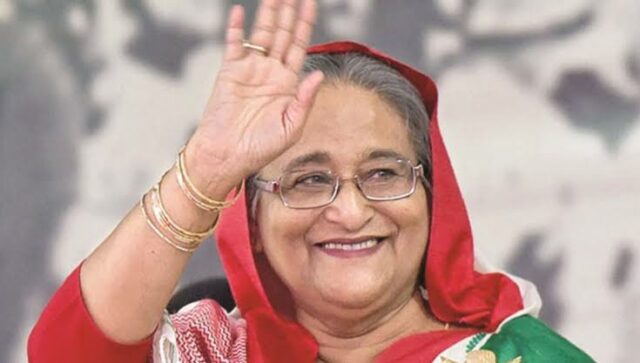NEW DELHI: India is a factor in every election in Bangladesh because “geography and God have given this to us”. This does not necessarily result in “anti-Indianism”, rather India’s close ties to Prime Minister Sheikh Hasina provoke negative reactions in the public mind that are stoked by “mischievous elements” in the ruling Awami League and, of course, elsewhere.
Multiple sources in Bangladesh and those studying the election tea leaves as that country prepares to vote on January 7 say India must step back from its close embrace of Sheikh Hasina to dispel the impression she is heavily dependent on Delhi. India should shape a public discourse in Bangladesh where the two countries are seen as working together, equal partners so to speak at a time when Bangladesh will graduate from least developed country status in about two years.
The expectation is Sheikh Hasina will be in the saddle when that auspicious date comes around because there’s no way she can lose this election. The opposition BNP is boycotting the polls because the prime minister has refused to step down so a neutral caretaker administration can take charge. The curious element here is reports that some BNP leaders have requested the Awami League not to contest from certain seats, so they can get elected.
Odder is the number of Awami League members who are contesting as “independents” against the “official” candidates. Reportedly, this has Sheikh Hasina’s nod. It could be she sees this as a way of getting rid of malcontents, habitual dissidents, poor performers or even those whose loyalty she doubts. She may see this as an opportunity to revitalise the party to tackle an issue gnawing at the public mind: poor governance, and growing corruption among sections of the Awami League rank and file.
“It’s a way of separating the wheat from the chaff,” said a former diplomat in Delhi with a long experience of Bangladesh. “She’s signalling to the ‘aam aadmi’ that she is alive to their concerns and is responding. It helps that in the public perception she has performed well but must improve on governance.”
“The Bangladeshis ability to tolerate pain is very high,” he underscored, “but at the ‘ouch’ point, it explodes into violence.”
Radicalisation of young people is a worry. In Bangladesh, economic circumstances compel most families to send only one child to an English medium school, the other ends up in a madrasa where tuition is free. Although many madrasas have adopted instruction in secular subjects, the concern is when they profess a political agenda and indoctrinate their students.
A word about the U.S. and China. Much has been said and reported about the U.S. pressure on Bangladesh over democracy, human rights, holding free and fair elections and so on. As is usually the case with the U.S., the issues lie elsewhere.
Washington wants Dhaka to sign the Status of Forces Agreement that would permit free movement of U.S. troops on Bangladeshi soil. It wants access to Bangladeshi gas even though data from the state government owned entity Petrobangla indicates that natural gas production is on the decline. The U.S. disagrees, saying it is going by U.S. geological surveys. Dhaka says it would prefer to do its own survey.
Uncle Sam also wants access to 29 blocks for oil exploration. Dhaka says it is ready to give some blocks to the U.S. but not all of them. Clearly, Sheikh Hasina will not want her country to be held hostage to the politics of some other country. Add to this the U.S. tendency to view Bangladesh through the China prism. Result deadlock.
“The China fear is a little overblown,” says the diplomat in Delhi. “Sheikh Hasina sees China as a partner in the development of her country, nothing more, nothing less.”
While the Bangladesh military is heavily dependent on Chinese hardware, efforts are on to diversify and find new vendors. But Washington is not listening, influenced as it is by a lobby of businessmen linked to the exiled BNP leadership in the United States. Relations could get back on course if Sheikh Hasina returns with a handsome majority.
Thirty eight years in journalism, widely travelled, history buff with a preference for Old Monk Rum. Current interest/focus spans China, Technology and Trade. Recent reads: Steven Colls Directorate S and Alexander Frater's Chasing the Monsoon. Netflix/Prime video junkie. Loves animal videos on Facebook. Reluctant tweeter.





